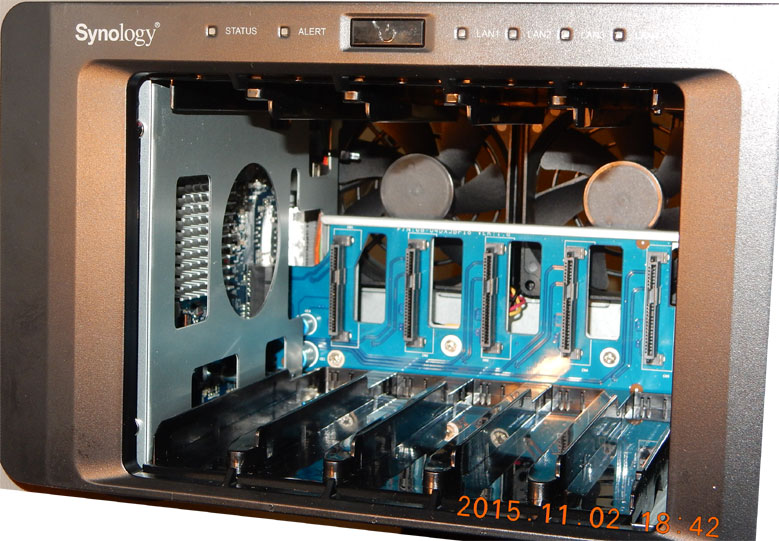 [ . . . always in progress . . . ]
[ . . . always in progress . . . ]
Everybody who uses little-known in US, but powerful Synology network storage boxes can’t help but fall in love with them. I was thinking to replace my old 2008 Windows server with a new one, but pain of maintaining and configuring stopped me. Is there a better choice out there? Yes. Something called NAS – network attached storage. To begin with, I almost bought Western Digital My Cloud box, but reading comments about slowness of performance stopped me there. On the contrary, reading Synology reviews made me salivating. And reality was even better than expectations.
The main purpose of Synology is to be a file server with expandable hard disk capacity. But as you use it, you discover more and more features that someone thoughtfully included. Main ones are: Apache Web Server, Surveillance Station, expanding functionality with Packages (similar to Apple APPS). And simplicity and cohesiveness of configuration options. Wow! But the fun part is that everyone will finding own favorite features, like LDAP compatibility, backup and recovery options, email notifications. And most importantly – it WORKS!
You are buying both hardware and operating system from one vendor. Preferably, you buy hard disks separately to match you level of redundancy and capacity. And no monitor! All configuration are amazingly done over IP connection. It feels so logical, you are almost wondering why this option did not come here sooner. All the features that I used to be able to do on Windows server I am now doing with my Synology box. Only one thing missing – it can’t run ASP and .NET web sites. This shortcoming gave me an reason to look into PHP, MySQL and Node.js and start rewriting my sites for these platforms. Eventually, I stopped my Amazon server and started to run all my sites on Synology. Consider this shortcoming as a actual hidden “health” benefit for your resume.
2017-08-02 On a closer look, you can run ASP.NET on Synology – Run .Net Core apps in Docker on Synology – but do not really need to now.
Things to Consider:
– What is this for? – Network Attached Storage =- NAS – this is your file server without a monitor
– Planning your purchase ( capacity, model and number of bays) – Synology DiskStation DS1515+
– Where to buy – Amazon + Refurbished ($680-$800)
– Configuration (memory, disks)
– Installing 4 GB of memory – max recommended.
– Replacing the cooling fan on the back – standard PC fan will do.
– Actual test: convert RAID 1 (2 mirrored drives) into RAID 5 (3 disk in one array) – works!
– Final configuration: two volumes (RAID 1 and one BASIC) that will be a copy of each other.
– Run WordPress site on DiskStation – Yes!
– Configure and run any custom PHP – MySQL web site on Synology
– Configure remote access to your Synology files
– Using telnet to access Synology Command Prompt
– Sending a question to Synology support (2016-01-11 MO)
* * * Exclusive * * *
How to schedule a MySQL backup on Synology
No script is required.
All you need is one single command that you can schedule in Control Panel –> Task Scheduler. Make sure it is all one long string – no new line characters in between:
/usr/syno/mysql/bin/mysqldump -u YourDBuser -pYouDBpassword yourDB > /volume1/YourPath/YourFile`expr substr $(date +%d) 2 1`.sql
If you run backup on 14 of January (last digit of the date is 4), your backup file name will be “YourFile4.sql”. That way you can have up to 10 previous D/B backups. I do not know yet how this expression will handle single digit dates. This solution:
-01- will overwrite previous existing backups with the same name;
-02- doesn’t require a separate script file to maintain, store and backup;
-03-can customize how many unique backups to keep.
How to restore damaged files in “invisible” directories
If you happen to delete or overwrite some native files by mistake, you can restore them by uninstalling and installing again the package. I accidentally overwrote “mysqldump” utility in “/usr/syno/mysql/bin” directory using telnet and command prompt. I was able to stop, uninstall and install back both phpMyAdmin and MariaDB packages, and everything work as before, and the file got restored.
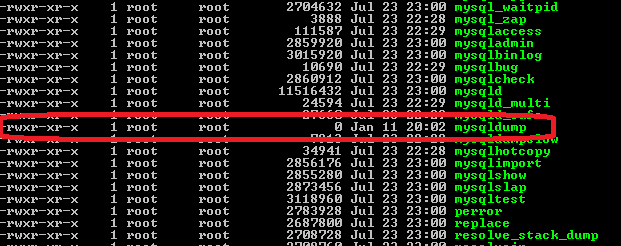


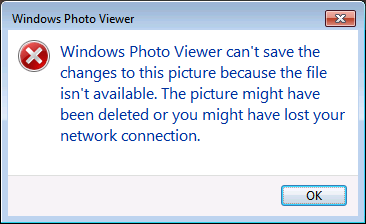
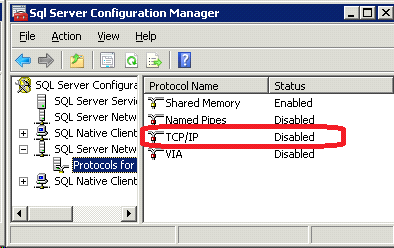
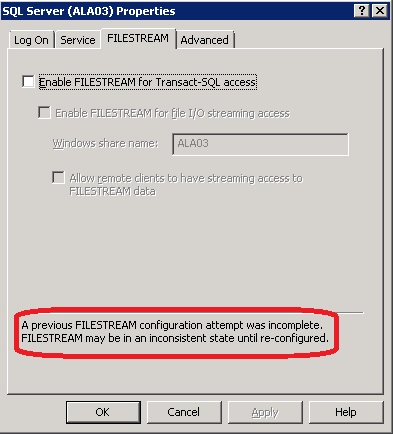
Be the first to comment